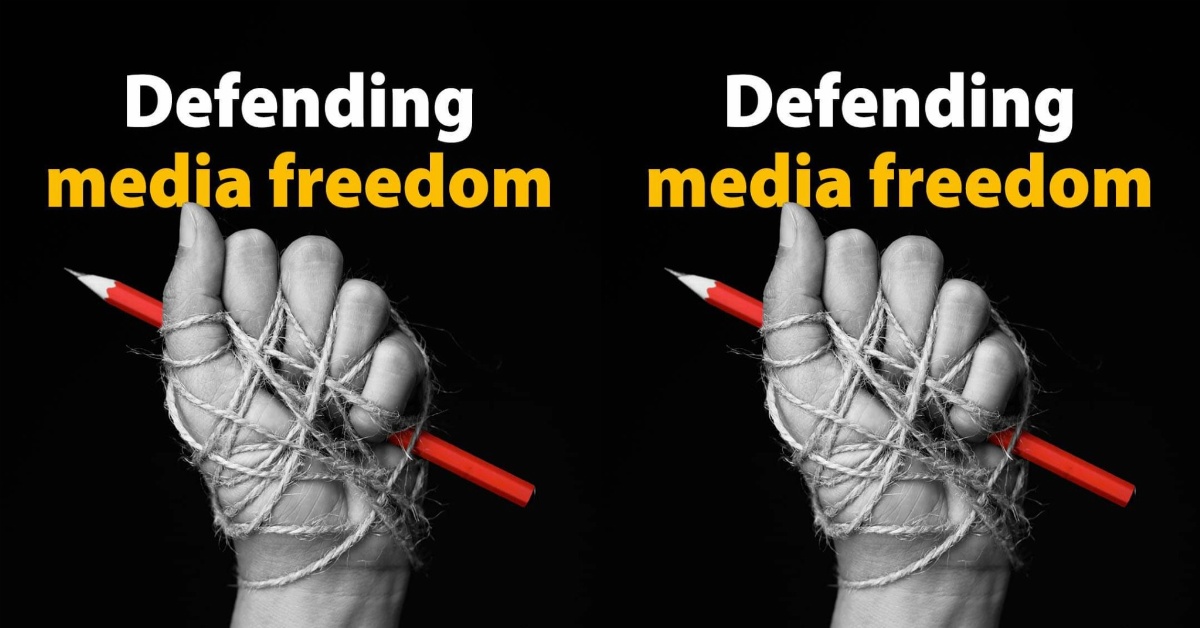Another world press freedom day, and for three years since the repeal of the Seditious Libel provisions in the 1965 Public Order Act, the media in Sierra Leone have now known and felt what freedom is all about The most fundamental change that has happened in the media in Sierra Leone is the freedom to practice.
May 3rd, every year is World Press Freedom Day. This year is the 30th year and the theme is “Shaping a Future of Rights: Freedom of expression as a driver for all other human rights”. President Bio has already shaped that future of human rights in Sierra Leone by repealing the obnoxious libel provisions in the 1965 public order. By doing that he made a massive progressive realization of human rights in line with national, regional, and international instruments. Freedom of Expression is guaranteed by Article 19 of the International Covenant on Civil and Political Rights and Universal Declaration of Human Rights, Article 9 of the African Commission on Human and People’s Rights, and Section 25 of the 1991 Constitution of Sierra Leone.
Before the repeal, it had been a persistent pattern of practising under fear. With several journalists locked up, harassed, media houses shut down, and the SLAJ executive having the headache of running to one police detention to another and one court room to another, President Bio promised to repeal that law if elected in 2018. He kept his promise, and his Information Minister, Mohamed Rahman Swaray, worked assiduously towards it.
The repeal came as a surprise to many people, even within the media. At the signing ceremony at State House, well-known journalists and former SLAJ Presidents did not mince their words of surprise and commendation to President Bio. Even Western diplomats were very impressed. That repeal made SLAJ refer to President Bio as the *Press Freedom Champion*. The repeal, though, did not come as a surprise to many other people that have known President Bio for his TOK N DO.
The benefits after the repeal are abound as several strides have taken place like media pluralism; the registration of more newspapers, radio stations, and other media. It has, in no doubt, added to the general improvement in content and increase in the number of professionals coming into the media, contributing to the body of knowledge on the media ecosystem in the country.
On December 7th, 2022 during the Presidential Media Cocktail at the Country Lodge, SLAJ President, Ahmed Sahid Nasralla was bold to have said that, “the most fundamental change that has happened in the media, and which we seem to be taking for granted because we now have it: is FREEDOM! The freedom to practice our profession, which we did not have pre-2020.”
Explaining the benefits of the repeal, the SLAJ President remarked “I have even forgotten when last, I and my Executive visited the CID or the Police to secure the release of journalists detained under the obnoxious criminal libel law for doing their work. That is the freedom I am talking about.”
Further expressing how free the media is, he averred. “I am not aware of any journalist who is in jail in Sierra Leone for what they publish or broadcast or tweet. That is the freedom I am talking about.”
In the past, a time like this on world press freedom day, the journalists would have to use several methods like protests, symposiums to draw attention of the state of the obnoxious libel provisions in the law book. That is no more as journalists have now known the essence of commemoration.
Historically, as he has been referred to as the Press Freedom Champion, President Bio was nominated on May 2nd, 2023, alongside his runningmate, Vice President Dr. Mohamed Juldeh Jalloh at the ECSL for re-election on June 24. Political observers have said he is poised to win by a wide margin.
The gains that the media have achieved post repeal are so much in such a few years. President Bio has not abandoned the media but has made sure that the media is supported and collaborated with for national development. The annual government subvention to SLAJ that was increased in 2021 (and a further increase announced by President Bio during his statement at the media cocktail in 2022). The freedom of information which the recent MCC scorecard puts at 98%; the biggest leaps in the World Press Freedom Index two years in row (in 2020 and 2021) since the repeal of the criminal libel law; safety and security of journalists; development of a national framework, and a policy on safety of journalists in Sierra Leone; establishment of a National Coordination Committee on the safety and security of journalists in Sierra Leone; Sierra Leone joining the Global Media Freedom Coalition- a high level platform where governments engage and peer review their commitments to enhancing freedom of expression and free media; the historic media viability and investment conference held in June 2022; Sierra Leone has for the first time being listed as one of 17 countries in the world to benefit from the International Fund for Public Interest Media (IFPIM).
I can safely say it that the media in Sierra Leone is now a subject of discussion in international media meetings where it is solidly anchored on better ideals of freedom of expression. The legal and other institutional framework for media operations in the country, the relationship between the Media and the Minostry of Information on one hand, and IMC and other operatives on another, are all well-designed and can best serve as a point of reference for most countries in Africa.
With these remarkable results of a strong political will to ensure the media makes progress. The media is indeed making that progress in Sierra Leone, and there is now a reason to celebrate World Press Freedom Day.











